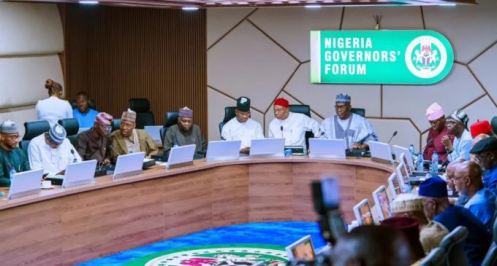
“Nigerian Governors Criticized for Rejecting N60,000 Minimum Wage Proposal”
By Fiona Nanna, ForeMedia News
2 minutes read. Updated 1:00PM GMT Sat, June 9, 2024
Primate Elijah Ayodele, leader of Nigeria’s INRI Evangelical Spiritual Church, has condemned state governors for rejecting a proposed increase in the national minimum wage from N30,000 ($65) to N60,000 ($130), opting instead for N57,000 ($123). Ayodele described the governors as “heartless” for failing to address the financial hardships faced by workers in the country.
In a statement by his Media Aide, Oluwatosin Osho, Ayodele pointed out that the current economic conditions make the proposed N57,000 ($123) insufficient for workers to meet their basic needs. He stressed that this inadequacy contributes to the ongoing insecurity in many regions of Nigeria.
“Our governors are heartless. Paying N57,000 as a minimum wage in this present time is like punishing workers because there is serious hardship in this country,” Ayodele stated. “They collect security votes and allocate different payments to themselves, but paying a meager amount as minimum wage has become a problem for them.”
Ayodele warned that underpaid security personnel might resort to corruption or collusion with criminals out of financial desperation, further worsening the security situation in the country. He called for a reassessment of worker salaries to reflect the rising cost of living, contrasting the generous compensation received by politicians with the meager earnings of ordinary workers.
Additionally, Ayodele criticized Nigerian labor unions for shutting down the national electricity grid in protest of the wage issue, labeling it a dangerous action that harms innocent citizens. He urged unions to seek alternative, non-disruptive ways to express their grievances.
“Shutting down the national grid is totally condemned; it’s something that can cost the lives of innocent Nigerians. The unions should know how to express their grievances without affecting other Nigerians,” he remarked.
For more insights on Nigeria’s minimum wage controversy and its implications, click here.

